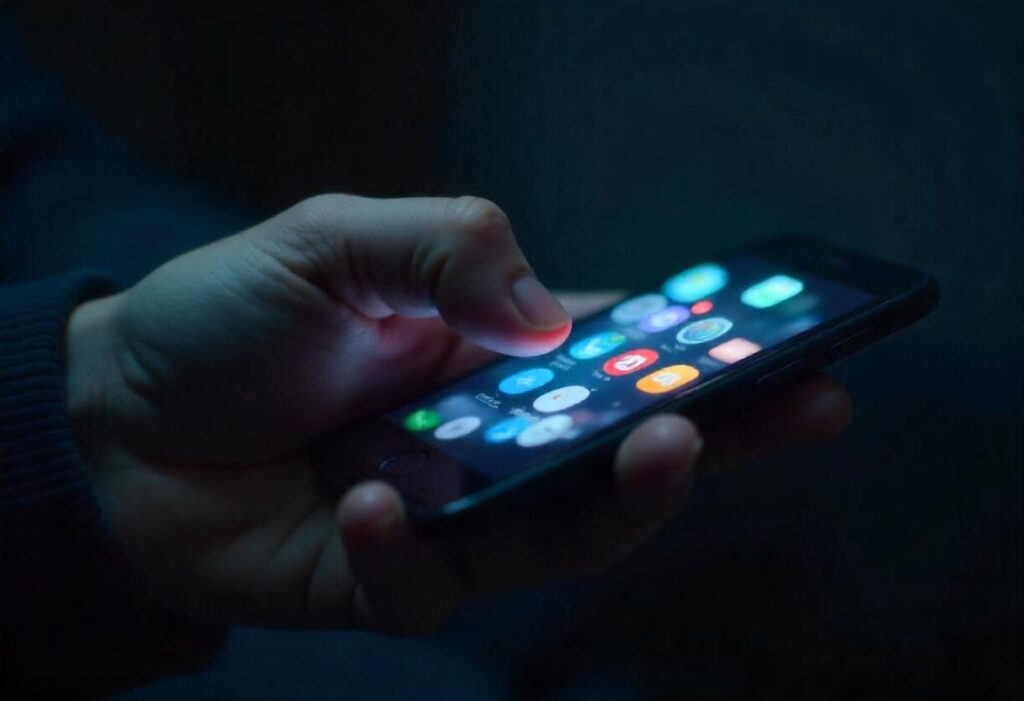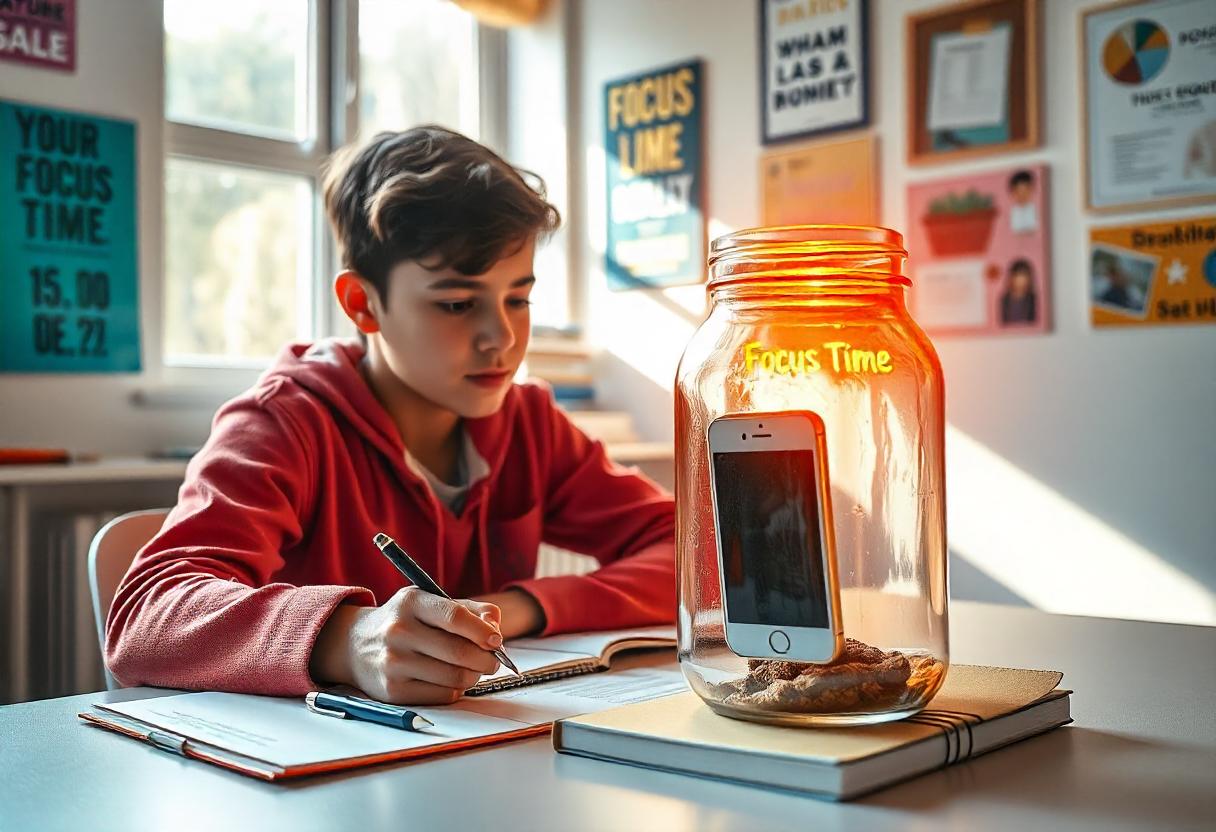Struggling to figure out how to stop phone addiction and study effectively? You’re not alone! In today’s fast-paced world, smartphones are both a blessing and a curse. While they keep us connected, they often become our biggest distraction—especially when it’s time to hit the books. But don’t worry! This blog is packed with simple, actionable tips to help you break free from your phone and unlock your true potential.

Table of Contents
What Is Phone Addiction?
Phone addiction is the excessive use of smartphones, often at the cost of productivity, relationships, or well-being. It’s characterized by compulsive behaviors like scrolling social media, gaming, or checking notifications frequently.
Example: If you find yourself grabbing your phone every 5 minutes during study sessions without any specific reason, it might be a sign of phone addiction.
Signs You Might Be Addicted to Your Phone
Check your phone as soon as you wake up and as soon as you go to bed.
experiencing anxiety when you can’t reach your phone.
Spending hours mindlessly scrolling social media.
Neglecting responsibilities or hobbies for screen time.
The Impact of Excessive Phone Usage on Focus and Productivity
When you use your phone excessively, then you have:
Reduced attention span.
Poor memory retention.
Increased procrastination and missed deadlines.
Example: Imagine preparing for an exam but constantly switching between a textbook and TikTok. This fragmentation of focus drastically reduces study effectiveness.

The Prevalence of Phone Addiction Among Students
According to studies, the average student spends 4–6 hours daily on their phones. This heavy reliance often leads to distractions, reduced study time, and even anxiety.
Tip: Acknowledge this widespread issue to feel motivated to take action—it’s not just you facing this challenge!
The Importance of Balancing Phone Usage with Studying
Balancing screen time helps you stay focused, manage your schedule, and improve academic performance. Striking this balance is crucial for long-term personal and academic growth.
Use your phone as a tool for learning—like watching educational videos or setting reminders—while avoiding non-productive apps during study hours.
10 Strategies to Stop Phone Addiction and Study Like a Pro
1. Set App Limits: Use phone settings or apps like Digital Wellbeing to cap usage.
Example: Limit Instagram to 30 minutes a day.
2. Turn Off Notifications: To cut down on distractions, turn off any notifications that are not necessary.
Example: Mute group chats during study hours.
3. Create a No-Phone Zone: Designate specific study areas as phone-free.
Example: Leave your phone in another room while working on assignments.
4. Use Focus Apps: Apps like Forest or Freedom block distractions.
Example: Plant a virtual tree in the Forest while you study.
5. Observe a Timetable: Set aside specific times for studying and relaxing.
Example: Study from 2–4 PM and use your phone guilt-free from 4–4:30 PM.

6. Replace Phone Time with Hobbies: Engage in activities like reading, journaling, or exercising.
Example: Swap scrolling with a 20-minute walk to refresh your mind.
7. Track Your Usage: Use apps like Screen Time to monitor your phone habits.
Example: Check weekly reports to identify apps that waste your time.
8. Reward Yourself: Set goals and give yourself rewards for sticking to them.
Example: Watch one episode of your favorite TV after two hours of studying.
9. Adopt the Pomodoro Technique: Study for 25 minutes and take a 5-minute break, keeping your phone away during these intervals.
10. Get an Accountability Partner: Ask a friend or family member to remind you to stay off your phone.
Example: Have a sibling check in if you’ve exceeded your daily limit.

Conclusion
Phone addiction can disrupt your focus, productivity, and academic progress, but it’s never too late to take control. By understanding its impact and implementing simple strategies like app limits, no-phone zones, and time management techniques, you can create a healthier balance. Remember, reducing phone dependency not only boosts your study efficiency but also enhances your overall well-being. Start small, stay consistent, and watch your focus and productivity soar!
FAQs
What are some apps to block distractions while studying?
Apps like Forest, Freedom, and Focus Keeper help block distracting content.
How can I stay motivated to reduce phone use?
Set clear goals and remind yourself of the benefits of reduced screen time, like better grades and mental clarity.
Can phone addiction affect my mental health?
Yes, it can lead to anxiety, stress, and sleep issues.
How long does it take to break a phone addiction habit?
It varies, but consistent efforts over 3–4 weeks can build better habits.
Are there benefits to studying without a phone?
Yes, including better focus, retention, and more efficient use of time.
How do I stop wasting my time on my phone?
Use timers, focus apps, and a clear schedule to manage your phone use effectively.
How many hours a day is it okay to be on your phone?
Experts recommend limiting non-essential phone use to 2–3 hours a day.
How do I stop getting distracted by my phone at night?
Keep your phone out of your bedroom or use the “Do Not Disturb” mode.
How to stop phone addiction in kids?
Set boundaries, encourage outdoor activities, and lead by example.
Is 7 hours a day on the phone too much?
Yes, as it can lead to reduced productivity and health issues. Aim for moderation.




